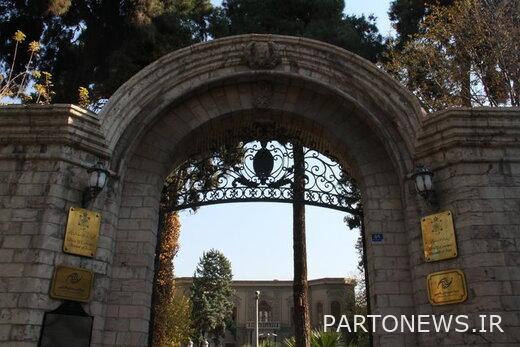Farabi had forgotten his duties/ were the voices of the critics heard?

The Farabi Cinema Foundation has faced many criticisms in the past year, and now in the past few days and with the meetings it has held, it has somehow accepted that it has heard these criticisms.
Charso Press: Like it or not, the Farabi Cinema Foundation has always faced a lot of criticism, and this amount of criticism has increased even more in the past year, and there were many reasons for this. Now, in line with the expansion of interactions between the Farabi Cinema Foundation and the professional body of Iranian cinema activists, two days ago a group of influential critics and activists in the field of film writing with Syed Mehdi Javadi CEO of Iran Cinema Foundation met and talked.
In this meeting, the CEO of Farabi, while emphasizing the importance of holding a meeting with the professional activists of the cinema industry, said: “Last year, Farabi faced many slanderers who had neither constructive criticism nor even a credible word to say, and instead of media controversy, we took our time.” We focused on the production of works and the promotion of Iranian cinema activities. We have worked in this one year and now there is a portfolio that can be a place for our evaluation and criticism, and we welcome to put our portfolio in the criticism box. “We consider meetings with cinema professionals because we welcome our performance to be a principled and professional critique.”
This meeting was held with the presence of critics and activists in the field of film writing, the importance of the original flow of criticism in the strategy of cinema management, the current position of film criticism and writing, the need for continuous communication between critics and film management and providing an effective strategy to the Farabi Cinema Foundation, as well as efforts Farabi was among the most important issues that were discussed in promoting the specialized field of film writing.
But the fact is that the Farabi Cinema Foundation has decided to talk to the fans after all the criticisms that have come to him, we don’t have to travel a long way. They criticized him a lot. In the first step, the issue was the number of films present in the festival, out of the 20 or so films that were present in this event, 9 films were for this film foundation.
“After Going” directed by Reza Nejati and produced by Mahmoud Babaei, “Jengal Portaqal” directed by Arman Khwansarian and produced by Rasool Sadr Aamili, “The Unfinished Narrative of Sima” directed by Alireza Samadi and produced by Majid Rezabala, “Cinema Metropol” directed by Mohammad Ali Bashe Ahangar and produced by Seyed Hamed Hosseini, “Number 10” directed by Hamid Zargarnejad and produced by Ebrahim Asghari, “Captain” directed by Mohammad Hamzaei and produced by Seyed Saber Emami, “Leather Coat” directed by Hossein Mirzamohammadi and produced by Kamran Hijazi, “Bowardeh Flowers” directed by Mehrdad Happy and produced by Saeed Saadi and “Hook” directed by Hossein Rigi and produced by Ali Ashtianipour were the titles of the films that represent the National Institute of Iranian Cinema in Fajr 41 in alphabetical order.
In the first step, criticisms were directed at the festival and its organizers because most of the films in this event are for government institutions, and at the same time, there were criticisms about the fact that the films are divided into two categories, insiders and non-insiders, but The second part of the criticism started when the films were screened, and many critics and audiences asked the Farabi Cinema Foundation what kind of films were spent on such films and why their quality is so poor?
Selling movies to TV
About two months have passed since this incident and suddenly three films appeared in the schedule of television programs that had been released for the first time two months ago and still had not been shown on the cinema screen. It is a very rare thing for a movie to be aired on TV before it is released in the cinema, which happened for the first time to the movie “Yadu”, which received almost more than half of the awards of that period of the festival, and this process continued until This year’s Eid and the broadcast of those three films on television. This incident raised two questions, is it Farabi’s duty to make films for television? Is it reasonable for the movie to go on TV before it is released in the cinema?
The answer to both questions was definitely no, and this incident opened the door for many criticisms to Farabi.
At the same time, Seyyed Mehdi Javadi said about the television broadcast of films made with the participation of the Farabi Foundation and that this type of broadcast may harm the cinema economy: “We believe that we did the right thing in terms of the “cinema economy”. Because the model of our contracts with the Broadcasting Organization was such that we received 500,000 cinema tickets for each movie at an average price of 30,000 Tomans. This price was determined by calculating that first and second class cinema tickets start from 20 thousand tomans and in campuses it reaches 45 thousand tomans.
The investor of these films that aired on TV was Farabi, and in criticizing this action, Farabi of Javan newspaper seriously criticized this organization.
Although broadcasting movies on TV is beneficial to this medium, it hurts the cinema’s economy. After the release of these films on TV, they no longer have a place among Arabs and no one wants to see them in the cinema. Movies are made to be screened in cinemas and most of their profits and income come from ticket sales.
Unless TV pays a lot of money to film producers for broadcasting and this money goes back to the production cycle, which seems far-fetched with the current conditions of broadcasting. Has Farabi charged a high fee for ordering television rights? It seems that the minimum production cost of the two films No. Ten and Hook is about 30 billion. Did the TV give at least half of this money to Farabi for airing these two medium-to-low movies?
Of course, in a situation where the figure of 15 billion tomans for films was announced, Ebrahim Asghari, the producer of the movie “Number Ten” earlier Khabaronline had said that a coordination was formed between me and Farabi, and according to the follow-up of the Broadcasting Organization, a budget of 7 to 8 billion tomans was proposed for the purchase of this film and its broadcast on two occasions.
At the same time, Mahmoud Gabarlu, a film critic, criticized this performance He announced his opinions about Farabi’s filmmaking and selling it to TV and radio.
Whether the movie productions are qualitatively good and strong or bad and weak are personal theories. What is the worldview of a foundation? And more importantly, the Farabi Cinema Foundation should not choose lower standards in terms of form and technique and introduce a work as its own work. Farabi Foundation should respect these issues, not to make a product that experts, critics and analysts do not approve, and these serious problems have been introduced.
100% of the film produced by Farabi must be effective in terms of technique, form and content, otherwise, naturally, the private sector can also produce superficial and ordinary films. What we expect from Farabi is to produce noble and valuable works, and his job is not to produce superficial films. The discussion of the cinema box office is also analytical and deep. The cinema box office may not be supplied with fancy films or special thoughts, but with ordinary films and sometimes comedies; Because it is not defined in the policies of the cinema organization to supply the cinema box office and they are mostly looking for luxurious and valuable works.
Maybe now is the time for us to make a change in our own cinema strategy and the strategy of the government cinema, because the cinema is going bankrupt, the films are not sold, the seats are empty, and the cinemas are not selling much, and they are suffering from poverty and problems, and the weakness that we What we have now is that the cinema organization operates according to its old routine and does not look at what the taste of the cinema audience is today in order to provide the box office through that.
I’m not saying we should move to shallow comedies just to make money. We can have great and good movies so that the audience will come to the cinema hall and watch the movie willingly.
Has Farabi heard the critics?
Now, after that press conference with film critics, Farby Cinema Foundation has announced the finalization of this foundation’s production portfolio for this year and has addressed several issues that were seriously criticized by this foundation last year.
Masoud Ahmadian, the head of cultural affairs of the Farabi Cinema Foundation, said about the latest status of the foundation’s film projects this year: “One of Farabi’s policies in the field of cinema productions is the support of subject diversity, and we do not seek to introduce all the productions we support as Farabi products. . Because Farabi’s duty is to support the development of Iran’s national cinema. Many films and screenplays are supported in Farabi for promotion, and the name of Farabi is not mentioned in that work as a contributor or the owner of the film. Some of the works supported by Farabi last year are of the same genre, and Farabi is in line with the development and prosperity of cinema. National Iranian has supported them. Among them, we can mention “The Case is Open”, the last work of Kyomarth Pourahmad’s biography, or “Bucharest”, which led to the revival of cinema in the post-corona era.
Not all Farabi productions refer to “Fajr”.
Ahmadian further added: “One of the most important issues regarding Farabi’s production method, which needs to be corrected in public belief, is that not all Farabi’s productions are related to the Fajr Festival, but for Farabi as the national institution of Iranian cinema, the development of national cinema is the main issue.” In fact, protection of national interests, development of genre, employment and development of cinematographers’ activities and activation of provincial capacities are among the most important points in Farabi’s decision-making process in the production process.
The director of the Farabi Foundation continued: “As the national institution of Iranian cinema, Farabi has principles for its productions and is not going to do parallel work. We will enter areas where few people have entered these areas or the private sector cannot enter these areas. In fact, Farabi is trying to fill the gaps in production in Iran’s national cinema.
The product portfolio of 1402 Farabi has been finalized
The cultural deputy of Farabi Cinema Foundation emphasized about this year’s productions: “The most important thing about this year’s production process is that Farabi’s production portfolio of 1402 has been finalized, some of the works are under production, and Farabi’s plan for productions has been clearly defined. “Also, some of the productions that started last year are being followed up.”
Ahmadian added: “The production of some works has started since last year, and some others have entered the pre-production stage with the final process of the script. In addition, in principle, some productions are not planned for one year, and due to the amount of work, some projects are defined in a two-year period.”

